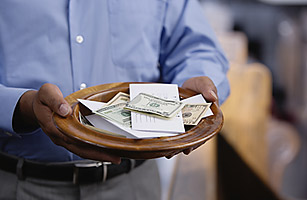
There are more reasons than mere theology why Evangelical Christian leaders are raising Cain over the message now being wholesaled by the Rev. Rob Bell of Mars Hill Bible Church, featured in TIME’s current cover story, “What If There’s No Hell?” Bell’s I’m-O.K.-you’re-O.K., we’re-not-going-to-hell-today spin is not merely a refutation of a basic belief. If this piece of theological reordering takes hold, it’s the Evangelicals’ business plan that’s going to hell.
Fire and brimstone has been one of the Evangelicals’ main product lines. It’s based on a zero-sum outcome: heaven or hell. Believe or perish. And part of the deal, at least in practical application, is that you can’t get spiritually right without monetarily supporting the church. Pay to play, in other words. It’s the same with most religions. No one says so in those crude terms — it’s all about the mission — but a sales pitch is a sales pitch, even one accompanied by a choir. You can’t build the Crystal Cathedral on prayer alone. There’s a mortgage to pay.
And contributing money is a perfectly reasonable investment for the faithful. You may not be able to pay your way into heaven , but you can help build the pathway on earth. Corporations like to measure return on equity, usually expressed as ROE. But you could say that church donations offer a different kind of ROE: return on eternity. And they’re tax deductible to boot.
But what happens if Bell is right? Is it possible that the return on eternity on these contributions has dropped compared with other spiritual investments? For instance, maybe there’s a bigger ROE in giving to the poor or volunteering for Habitat for Humanity. Tithing your church may be too much of an investment risk if the returns are less certain.